HAVING a parent in the military can be difficult; older siblings may take on duties such as caring for younger siblings, or running errands. Often, teenagers find themselves overwhelmed with additional responsibilities at home. It can be a very difficult lifestyle, and having friends who understand what you are going through is important.
Moranda Hern and Kaylei Deakin are "military brats," representing the Air National Guard and the Army National Guard, respectively. Inspired by a women's conference in 2008, the two young women developed the "Sisterhood of the Traveling BDUs," or battle dress uniforms, a support group for girls who have one or more parents in the military.
Deakin and Hern formed the Sisterhood because they understood the difficulties many teen girls face while dealing with deployed parents, the official Web site states. Lack of self esteem, poor academic performance, lack of self confidence, eating disorders, self mutilation, depression and body-identity issues are all common reactions to the stress of life as a military dependant.
"Our main goal is sisterly support," Hern said, because only children of servicemembers know what other military kids are going through. "Secondly, our goal is to empower (girls) so they can develop the confidence to go after whatever they're passionate about."
"Our mantra says 'Unite, Inspire, Lead,''' Deakin said. "Of course we want to unite these girls with the common background of being in the military-having parents in the military-and we want to boost them, and their self esteem, and their self confidence, and then let them realize the potential that they have."
To achieve these goals, the Sisterhood encourages military girls to lead in their communities. To support their "sisters," the founders plan to hold conferences that will include various breakout sessions and guest speakers.
To keep costs for individual attendees down, the Sisterhood teams up with major corporations. Currently partnered with the California National Guard, Hern and Deakin coordinated a conference scheduled this past March. Girls interested in future events should visit the Sisterhood's Web site.
Female servicemembers and other women can also visit the site to learn more about volunteering and mentoring.
The Sisterhood's goal is to expand and open chapters in every state, as well as host a nationwide conference every year, Hern said.
"The conference basically focuses on everything our program wants to achieve," Hern explained. "We're bringing together 400 military teenage girls-all branches and services, Guard and Reserve and active-duty components as well-to just empower them."
They want "to give them the tools to become leaders and change the world, as well as just giving that support that Kaylei and I wished we had when our dads were deployed," Hern said.
The Sisterhood aims to teach girls how to set and achieve their personal goals, develop public speaking skills (and the ability to go out and use them), and encourage them to go out into their communities to start projects of their own, Deakin explained.
The Sisterhood launched a social networking arm of its Web site in November 2009. It includes discussion forums and chat capabilities to help the Sisterhood communicate with its target audience, Hern said.
Hern and Deakin lead other girls through the Sisterhood, and by example. Both are joining the military when they finish school: Hern will attend the Air Force Academy, and Deakin has enlisted in the Marine Corps through the Delayed Entry Program. They are also leaders in school and as volunteers in their communities.
"In the leadership role, I do a lot of stuff just in my school. I'm always there to support other kids and I have a club that I started just for military kids and teens that are aspiring to be (in the) military. And I'm always there. I'm like their big sister and guidance counselor in that area," Deakin said.
"Kaylei and I do a lot of community service, whether it be in the military or just on our own, we try to live out our message that girls really should be involved in their communities," Hern added.
Getting involved with the community is a good way for girls who have a parent in the military to cope with the stress of deployment.
"My best advice is just get plugged in with other military kids who understand what you're going through and what's going on," Hern said. "Being a kid in the military is really special. We have special challenges, and special triumphs and advantages. So I think the best way we could empower ourselves through deployment is by empowering each other."
Balancing the management of the Sisterhood with the other day-to-day activities of an active teenager is sometimes difficult, but both Deakin and Hern think satisfaction of overcoming those challenges is well worth the effort.
Deakin, who has two younger sisters at home, is grateful to have started the Sisterhood. When her father gets deployed and she goes to boot camp, the younger girls will have a support group already, and Deakin won't have to worry about them as much, she said.
"At the end of the day, it's so empowering knowing that your high school (career) isn't just finishing up SAT scores and focusing on graduating," Hern said, "We're actually leaving a legacy, and that's what we want girls in this conference to grasp onto. Just because we're teenagers doesn't mean we can't start leaving our legacy right now."
"We're so proud of being military kids and having parents in the military. It's such an honor and such a privilege because it's not just a lifestyle-it's a community that we live in," Deakin said. "We have such a tight bond (with) each other."
For more information about the Sisterhood of the Traveling BDUs, <a href="http://www.sisterhoodbdus.org">visit www.sisterhoodbdus.org.</a>
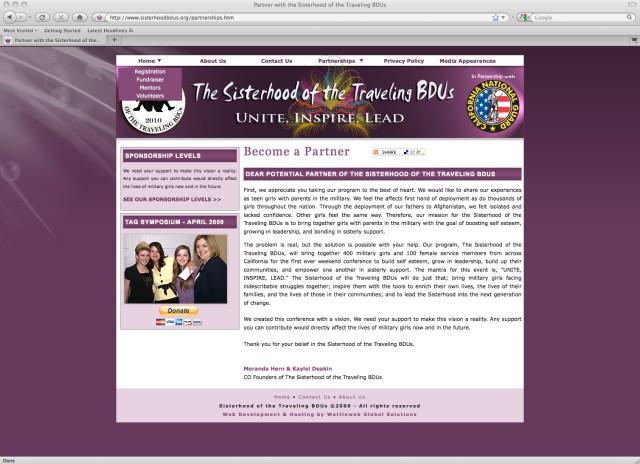
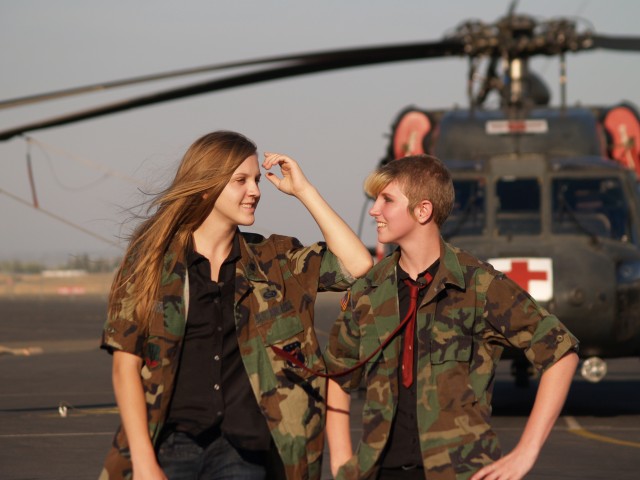
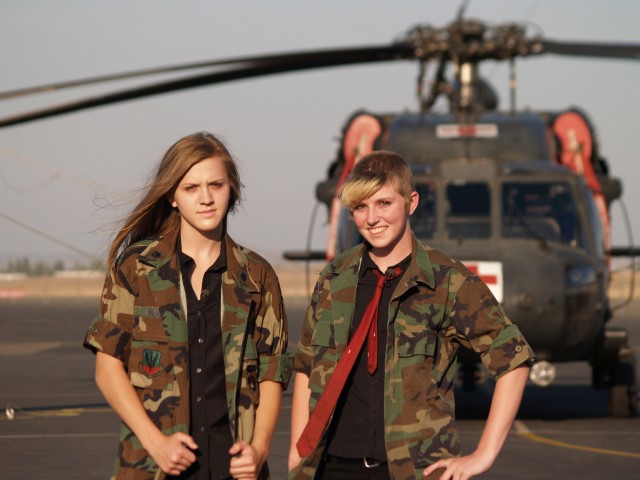

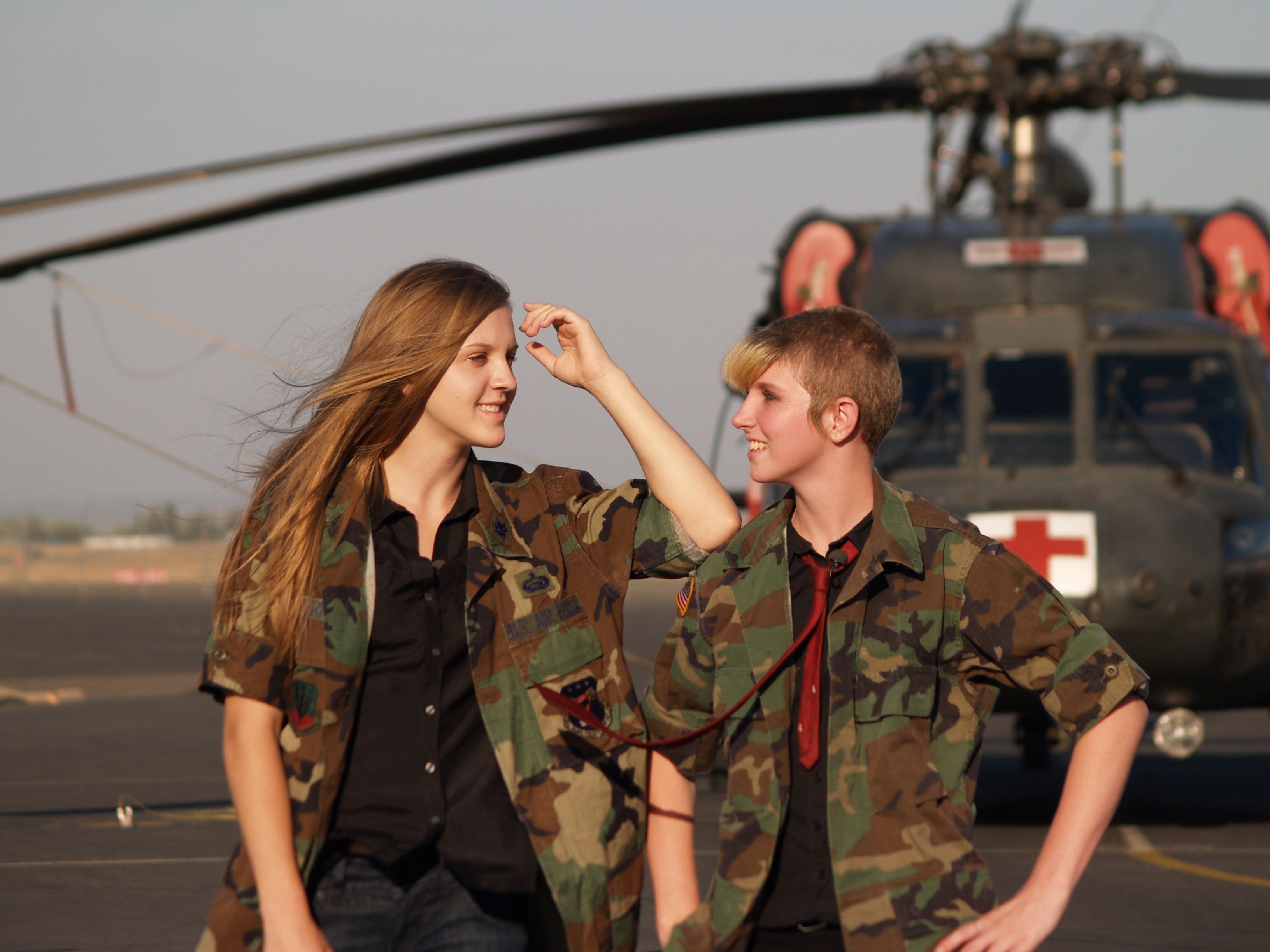
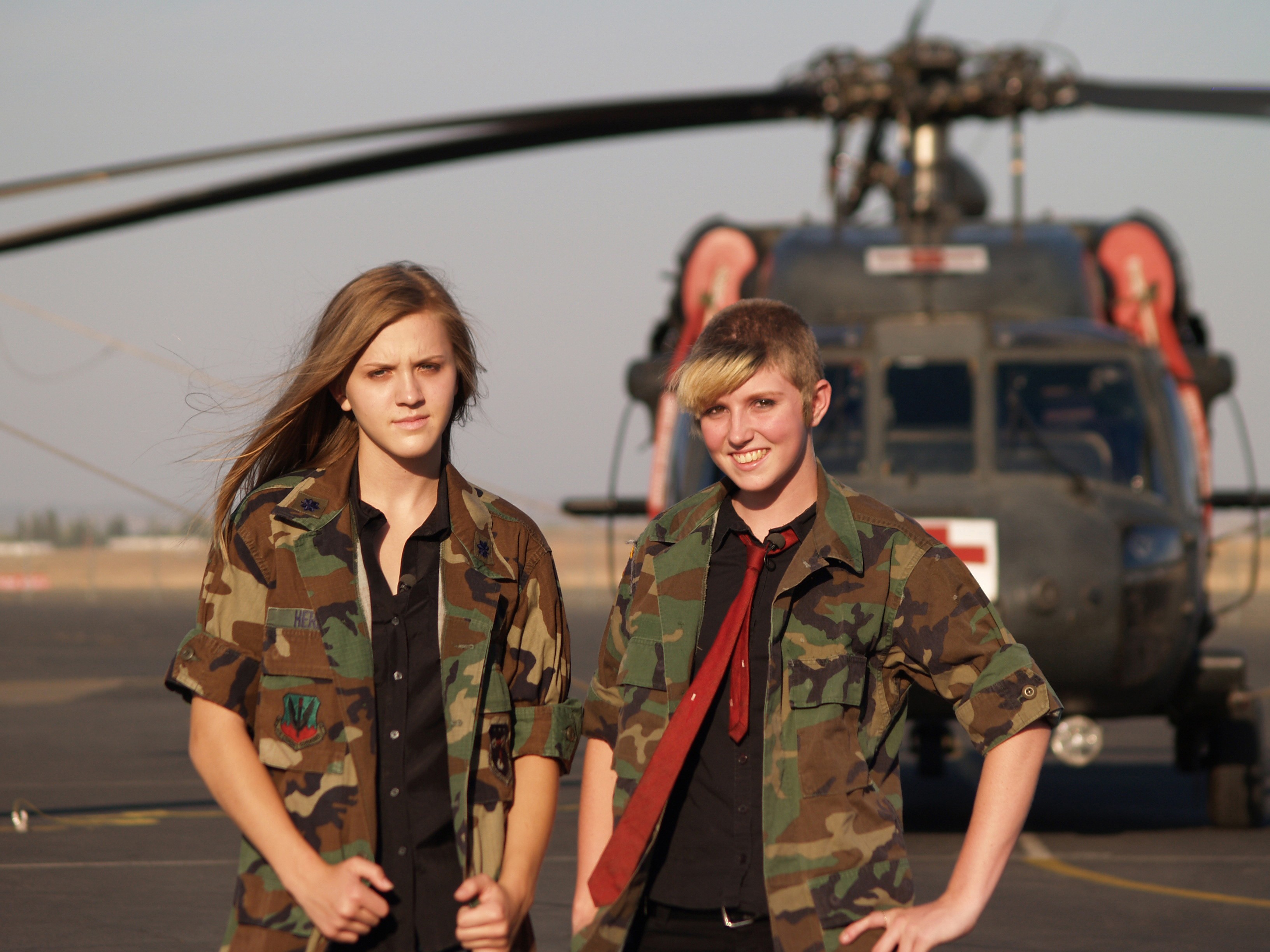
Social Sharing